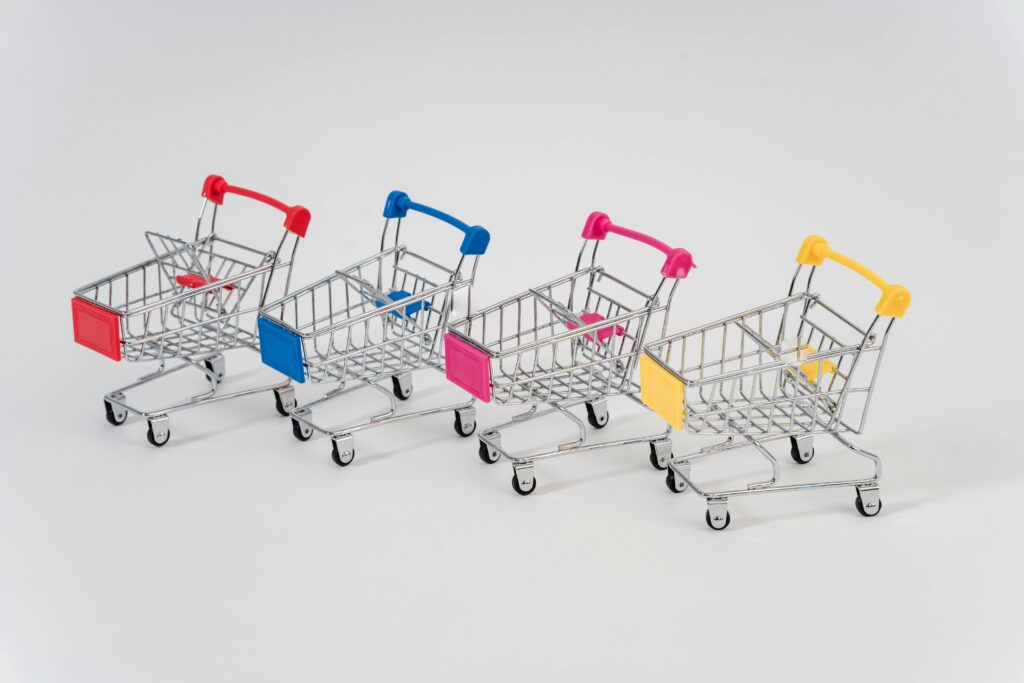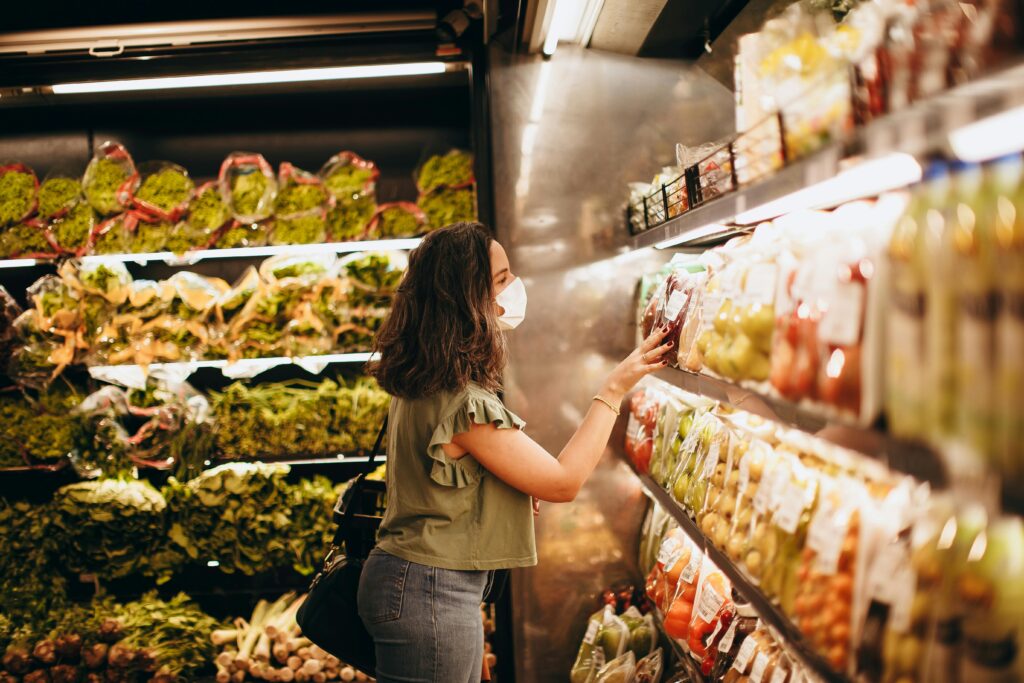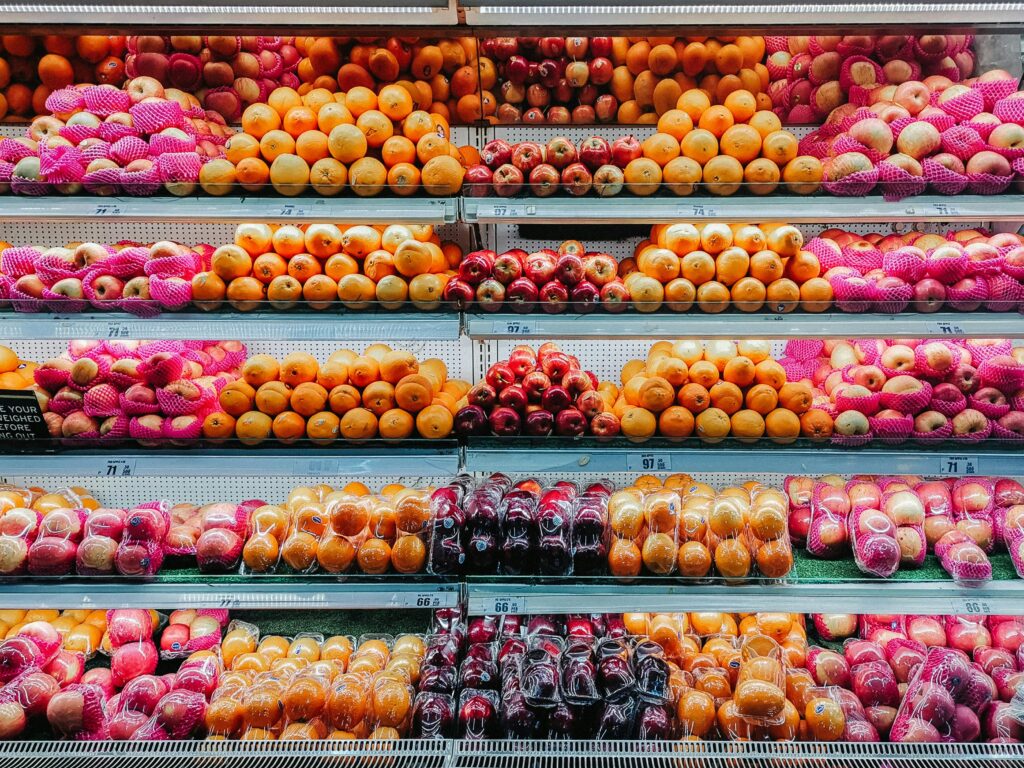
NEWS
In his analysis, Ye Guofu, CEO of MINISO, mentioned more than 25 times the successful model of the retailer Pang Donglai.
Ye Guofu stated that the reason for investing in Yonghui was noticing that Pang Donglai had helped Yonghui drastically renovate multiple stores successfully, which proves that the model can be replicated nationwide.
On the evening of September 23, MINISO announced on the Hong Kong Stock Exchange that it has acquired a 29.4% stake in Yonghui Superstores for 6.3 billion yuan, including the 21.1% held by the Milk Company and 8.3% held by JD.com. Following this transaction, MINISO is expected to become the largest shareholder of Yonghui, further expanding its offline retail footprint. Additionally, the announcement indicated that Juncai International and its controlling party, MINISO, will collaborate with Yonghui to transition to a quality retail model.
In the subsequent conference call, MINISO’s CEO Ye Guofu and CFO Zhang Jingjing provided an in-depth explanation of the deal.
During the call, Ye Guofu discussed that the reason for buying into Yonghui was observing the remarkable success of store renovations performed by Pang Donglai, suggesting that this model could be nationalized. Following this approach, Yonghui could go through a transformative rebirth, setting new benchmarks for the future.
Ye mentioned Pang Donglai over 25 times during his explanation, describing it as a retail business with the best employee welfare, highest staff efficiency, and best treatment domestically. He also noted that the model is more suitable for consumption by small households and the general populace in China.
“The business of Yonghui is at a turning point, with a substantial outlook for success. Yonghui possesses massive scale, robust cash flow, and is undervalued by the market. As long as it persists with the adjustments, Yonghui is expected to return to the ranks of great retail enterprises. This investment by MINISO will create value for investors. Yonghui will supplement MINISO’s range of necessities and diversify the group’s cyclicality, assisting MINISO in becoming a large retail company with global influence,” said Ye Guofu.
Zhang Jingjing also expressed that the losses of Yonghui Superstores have been influenced by factors such as community group buying and e-commerce impacts. With a history of consistent profits in the past and only experiencing losses in the recent three years, there are opportunities for a return to profitability. From a retail perspective, MINISO is optimistic about the future of Yonghui and believes in the retail industry’s prospects. MINISO could also assist Yonghui in optimizing its shareholder and governance structure, utilizing both parties’ strengths in channel upgrade and supply chain integration.
Following is the full transcript of MINISO’s acquisition of Yonghui Superstores conference call:

PART ONE: CFO Zheng Jingjing
Transaction: Completed through agreement transfer, at 2.35 yuan per share.
Pricing: According to regulation, the price cannot be less than 10% below the previous closing price, and the transaction is at a premium of 3.5% compared to the average price of the previous few trading days and at a 3% premium to the closing price, which is customary in the market.
After the transaction, MINISO will become the majority shareholder of Yonghui, but it won’t control the Board, hence, won’t become the actual controller and won’t consolidate the financials.
The deal is expected to be completed in the first half of 2025, with a transaction price of 6.27 billion yuan. Currently, the company’s cash on hand is close to 7 billion, and it hardly has any interest-bearing debt; it can still secure low-cost financing from banks for 60% of the transaction price in the future. The company’s main business also contributes a very ample cash flow.
Yonghui has maintained rapid growth in the past. The company believes Yonghui’s losses are due to the impact of community group buying, e-commerce, etc. In 2021, Yonghui adopted new leasing standards, and rental expenses increased by about 1.44 billion in one go, all of which affected net profit reported in the financial statements. Over the past three years, Yonghui has taken a series of measures to reduce losses, including restructuring and closing poor-performing stores. MINISO believes that Yonghui has been profitable for many years in the past and has only suffered losses for three years; there is a chance of return to profitability in the future. The company will not consolidate Yonghui’s financials but will account for this investment using the equity method.
From the perspective of retail, the company is optimistic about Yonghui’s prospects, thinking that the retail industry has a future. MINISO can help Yonghui optimize its shareholder and governance structure, and jointly enhance strengths in channel upgrades and supply chain integration. This investment will optimize MINISO’s capital structure, increase the use of debt, and is expected to optimize the overall ROE of MINISO.
The company’s management will still focus on the MINISO main business in the future, and the business targets given at the beginning of the year remain unchanged.

PART TWO: CEO Ye Guofu
☞ Why did you suddenly decide to invest in Yonghui?
On July 30th, I went to Zhengzhou in Henan province and visited the first store where Pang Donglai helped Yonghui with the alterations. I have been paying close attention to Pang Donglai. Two years ago, during my first visit, their products and ready-made food left a deep impression on me. Pang Donglai’s sales doubled last year compared to the year before, and in recent years, they have been very influential in the retail industry with a very successful business model.
After seeing the Yonghui store in Zhengzhou with the Pang Donglai model on July 30th, I sat there until late at night due to how busy it was. Afterwards, I went to Xuchang to inspect Pang Donglai. Later, I returned to Zhengzhou on Thursday afternoon, and it was still very crowded. I thought to myself how great it would be if that store was mine. I hoped to see Pang Donglai’s model spread beyond Xuchang and lead the Chinese retail industry into a new era. After that, I actively started to think about this matter.
In August, I visited the second Yonghui store on August 9th. It was about 500 meters away from the first one I visited and was equally bustling, which deeply impressed me, and I saw it as a huge opportunity.
☞ Why invest in Yonghui?
I believe that domestic supermarkets are currently in a period of structural opportunity. There are only two paths for retail in the future: low price or uniqueness. MINISO, Sam’s Club, and Costco all represent unique retail. I highly respect the Costco model and I even wrote an article about it. I led the company’s executives on a field trip to Costco in the United States in 2014. We also visited Trader Joe’s, which is the highest grossing retail format in the world. Their revenue exceeded 16.5 billion US dollars in 2020.
Then I discovered a Chinese model that I found to be even more excellent than these American models—Pang Donglai’s model. I strongly advise everyone to visit Pang Donglai and the new Yonghui Superstores so you can better understand MINISO’s investment in Yonghui. Sam’s Club, Costco, and Pang Donglai all focus greatly on products. The difference lies in Pang Donglai’s customer experience, respecting employees more, and absence of membership barriers.
Pang Donglai is known for having the best welfare, highest staff efficiency, and best treatment in domestic retail, and after my observations, I agree. I think Pang Donglai’s model is more suitable for consumption by small households and the general public in China.
Pang Donglai’s employee base salary—after deduction for social security and taxes—can be more than 8,000, which is twice the average. They also receive an annual bonus and holiday pay. They respect their employees, and the employees in turn treat customers well. I was touched by the service when I was in the store. I bought a baked sweet potato with a blurred barcode. They had been sitting for a while, and the staff proactively changed it for a new one since the old one wouldn’t taste as good. Retail is not failing because of the model, but because of the service and outdated products.
We have witnessed foreign supermarkets and the impact of e-commerce in the past, but we have also seen domestic supermarkets like Pang Donglai initiate a revolution. As Pang Donglai meticulously mentors Yonghui, it has the potential to stand out. Traditional offline supermarkets have essentially been operating as secondary landlords, focused on taking a cut from products and earning from entry fees, without ever really selecting products that consumers like, losing touch with the essence of retail.
Over some time now, based on my over 20 years of experience, I have a very accurate intuition about assessing whether a store will be profitable, and if a model will be successful, I am very confident. The Zhengzhou store’s first-day sales were 1.88 million yuan, 14 times the pre-alteration figure. The average daily visitor count was 5.3 times higher. Fuzhou’s first-day sales were 1.1 million yuan, with daily sales 6 times and visitor count 6.5 times the pre-alteration figures. The Xi’an store also saw a significant increase in customer traffic and sales.
The success of the three stores fully shows that the model can be replicated nationwide. If we continue down this path, Yonghui can be transformed and create new benchmarks for the future.
After Pang Donglai’s involvement, Yonghui’s product quality, employment environment, and customer-centric philosophy aligned with MINISO’s culture. MINISO also needs to continuously learn from Pang Donglai; they are an example for all retail businesses in China.
☞ How will MINISO operate and synergize?
In terms of channel upgrades and supply chain, MINISO first completed its brand upgrade to get better locations. In top commercial real estate, through IP enhancement, we got better positions. In the top 1000 malls nationwide, recognition for MINISO isn’t high enough. With the help of Yonghui’s brand, MINISO can better influence the mall, upgrade channels together, and get the best locations and rental conditions. This is similar to how Zara drives other Inditex brands.
MINISO has over a decade of deep cultivation in its own brand, a wealth of management advantages, and product teams, and will assist Yonghui in developing better own-brand products to compete with Sam’s Club, Costco, and Pang Donglai.
☞ How does the investment in Yonghui help MINISO create shareholder value?
Yonghui is at a turning point, with promising success, possessing massive scale, robust cash flow, and is undervalued by the market. As long as adjustment efforts continue, Yonghui will eventually re-enter the league of great retail companies. This MINISO investment will create value for investors.
Yonghui will help MINISO supplement its range of necessities and diversify the group’s cyclical nature, helping MINISO become a large, globally influential retail company. It will help Yonghui transform into China’s version of Sam’s Club while enhancing and leveraging MINISO’s product capabilities.
In summary: We believe that we can achieve an effect where 1+1 is greater than 2. This acquisition will not affect MINISO’s five-year plan; we will still insist on MINISO and Toptoy’s innovation and product strategies. We are committed to maintaining a revenue growth target of no less than 20% over five years.

PART THREE: Q&A Session with CEO Ye Guofu
Q: What is your vision for the synergy between MINISO and Yonghui? How do you plan to integrate the two businesses?
A: Our vision for synergy is primarily focused on leveraging the complementary strengths of both MINISO and Yonghui. MINISO brings its strong brand, product design, and global sourcing capabilities, which will support Yonghui in expanding and refining its product offerings, especially in terms of developing its own private-label brands. Meanwhile, Yonghui’s extensive retail network and experience in fresh food management will inform MINISO’s approach to retailing essentials and expanding into new categories.
We plan on cross-promoting brands and products where applicable, exploring co-branding opportunities, and improving efficiencies in the supply chain by sharing resources where we can. We’ll maintain separate brand identities while benefiting from the shared know-how and data analytics to improve customer experience and operational efficiencies in both businesses.
Q: How will this acquisition impact MINISO’s current expansion strategy?
A: The acquisition is not meant to alter MINISO’s current expansion strategy but to complement it. MINISO will continue to focus on its efficient approach to growth and consolidation of the current market sector. The investment will also provide MINISO with a broader product offering for our customers and enable us to deepen consumer insights with a broader data pool, which will ultimately guide our expansion strategy in a more informed manner.
Q: How will MINISO ensure that Yonghui’s transformation strategy does not distract from MINISO’s core business?
A: MINISO has a dedicated team working on the Yonghui project that is separate from the team running our core business. While the transformation of Yonghui is a priority, it will be managed in a way that does not drain resources or focus from MINISO’s main operations. There will be clear boundaries and synergies between the two, ensuring that each business has the space to grow without negatively impacting the other.
Q: What are the financial strategies to cope with the additional investments required for Yonghui’s integration and transformation?
A: We have conducted thorough financial planning regarding the investment in Yonghui. The initial investment will come from MINISO’s existing cash reserves, which are healthy thanks to our prudent financial management. We’re also exploring strategic partnerships and potential co-investment opportunities that could ease the financial load.
In terms of the long-term financial strategy, the aim is for Yonghui’s improved performance and profitability to support its own transformation costs. We project that the resulting synergies will not only cover the investment but also contribute positively to our overall financial health.
Q: Can you elaborate on the commitments MINISO is making to assure shareholders of the returns from this investment?
A: We’re committed to transparency and will provide shareholders with regular updates on Yonghui’s transformation progress and how it affects MINISO’s bottom line. The underlying commitment is that any major strategic investment or business adjustment must aim to increase shareholder value.
We will set clear KPIs for performance improvements in Yonghui’s operations that will reflect in the overall valuation increase. We expect that as Yonghui repositions itself in the market and leverages MINISO’s product and brand strengths, shareholders will see a return on investment through capital appreciation and, in the longer term, through potential dividends once Yonghui achieves better profitability.
Please note that this Q&A session is a mock-up and hypothetical in nature. Since MINISO is a real company, if it were truly going through such a transaction, the actual strategy, planning, and communication might be different and would be communicated through official press releases and reports.
Keywords:
1. Vegan food and snack product lines






